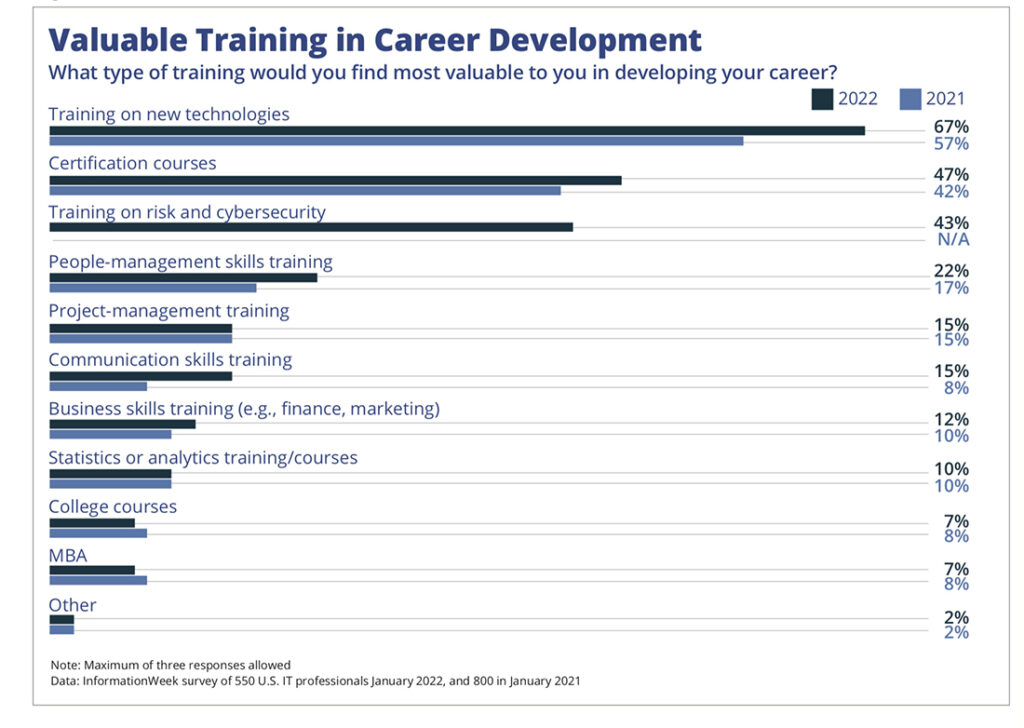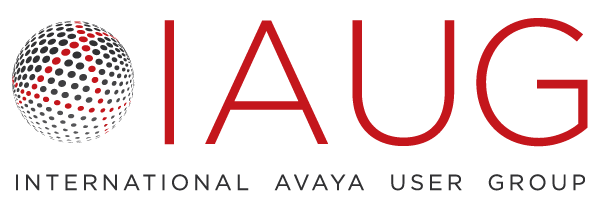Learning about new technologies, building leadership skills and managing cyber risks are among the top priorities for information technologies, according to a recent InformationWeek study, “US IT Salary Report: A Shifting Job Market for Tech Talent.”
Asked what training would be most valuable for developing their careers, IT professionals who participated in the survey had top two choices: “training on new technologies” (67 percent) and certification courses (47 percent).
Fortunately, IAUG offers members a wide range of training, certification and skill-building programs in a variety of formats. “I’ve found in my time with IAUG, is that they’re an excellent resource for training, vendors, new products, and solutions,” said AnneMarie Oliver, IAUG member. “IAUG works for me and it is a great resource.”

Business and collaboration skills
When InformationWeek asked IT professionals which skills were critical to their jobs, at the top of the list were their business and collaboration skills. Tied for first place were “aligning business and technology goals” and “collaborating with internal stakeholders,” both chosen by 58 percent of respondents. Other top choices included interacting with customers (47 percent), building vendor relationships (40 percent), experimenting with cutting-edge technology (40 percent), preparing reports (39 percent), and managing vendors (38 percent).
IT professionals listed several other vital technology areas, including:
• Cyber risk management (38 percent)
• Managing network and systems infrastructure (37 percent)
• Data infrastructure (37 percent)
• Data management (35 percent)
• Supporting desktops and user applications (33 percent)
• Data governance and privacy (32 percent)
• Analyzing, integrating, normalizing, or cleansing data (31 percent)
• Integrating enterprise applications (30 percent)
• Cyber resilience and business continuity (28 percent)
When asked about what skills would most benefit individual advancement, 33 percent of IT pros said cybersecurity and 32 percent said leadership skills. Cloud integration/management was third at 21 percent. Skills chosen by 3 percent or less of those surveyed included mobile app development, unified communications, server-less computing, data storage, IT service assurance, robotics, software-defined networking, wireless, virtual/augmented reality, and software defined storage.
IAUG’s educational partnerships
IAUG partners with Avaya, as well as other leading IT education providers, to ensure members can access in-depth technical information and stay up-to-date on the newest products and service. Those learning opportunities include webinars, podcasts, technical forums, chapter meetings and the annual Avaya ENGAGE conference.
In addition, Avaya Learning helps members build their knowledge, skills and expertise to realize the full value of their solutions. That includes Avaya Credential programs, which focus on building the necessary knowledge and skills required for a specific expertise level and a desired credential.
Addressing the talent shortage
Professionals with up-to-date IT skills are expected to be in high demand for the next decade. “Many IT pros are getting closer to retirement age, something that could create a more acute labor shortage than the industry is currently experiencing,” said Jessica Davis, senior editor, InformationWeek, in the survey.
She noted that 45 percent of the IT pros surveyed were 55 or older, reaching a potential retirement age in the next 10 years. That compares with 42 percent last year and 39 percent in 2019. “If organizations are experiencing a shortage of technology talent now, what will happen in the next decade as more experienced IT pros retire?” said Davis. “How are recruiters and hiring managers planning for the next generation of technology pros inside of organizations?”
As Davis points out, these are important questions for CIOs and other IT leaders as they plan their resources and workforces for the years to come. “This is also important information for more junior IT staff looking to move into roles of more responsibility,” she said. “What are the skill sets that will be needed in the years ahead? How can you prepare yourself to move into these roles?”
In any case, IAUG can help members build the technical, business and leadership skills needed to continue advancing in their careers.”
